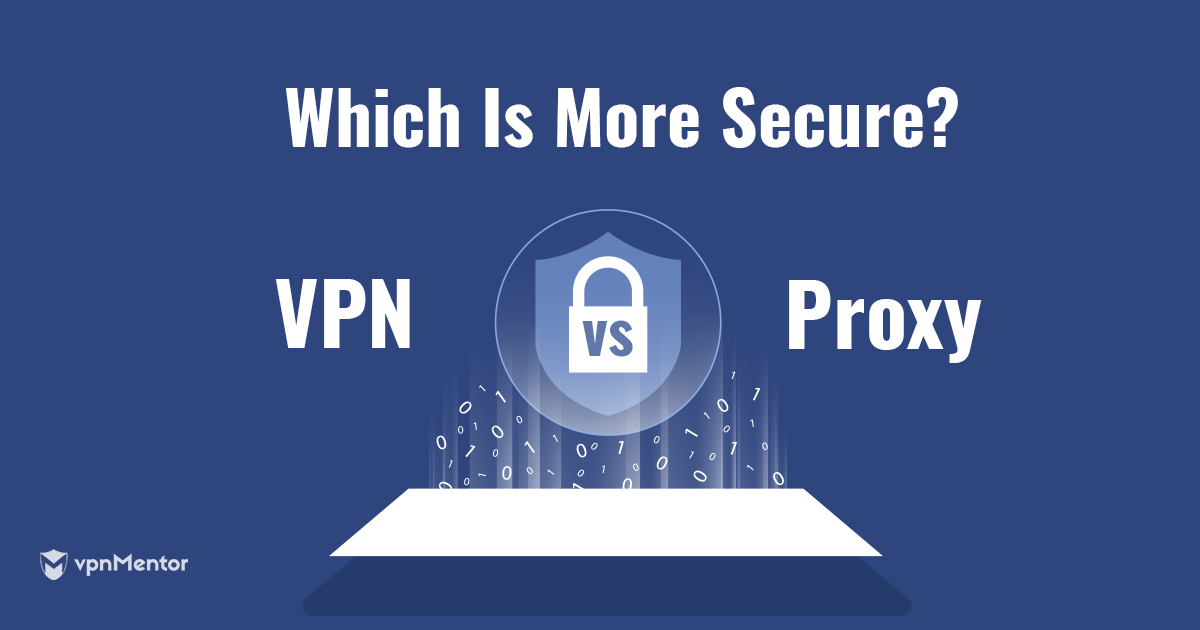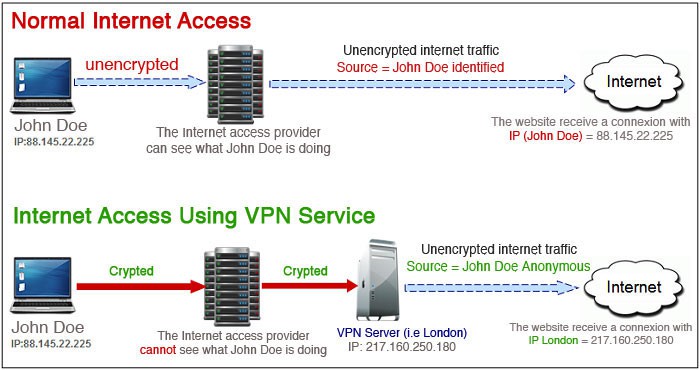Featured
Table of Contents
Difference Between Proxy Server And Vpn - Youtube
A proxy server will hide your IP address from websites and services that you visit. Someone may still identify your computer or device with fingerprinting, but that's unrelated to the proxy. Yes, both proxy servers and VPNs conceal your IP address from sites and services that you visit and use.
Protecting your web traffic isn't just a matter of accessing geo-blocked streaming content. It might also have deeper ramifications into the flexibility to gather or share details that's not accessible in someone's nation. Do you utilize a VPN to improve your personal privacy and security when browsing the web? What's your experience? Get all your applications, databases, and Word, Press websites online and under one roofing.
It is a mechanism of using encryption, authentication and integrity defense so that we can utilize public network as personal network. It enables users to from another location access a private network.

Privacy: VPN provides personal privacy by masking the user's identity and location, making it difficult for marketers and trackers to keep an eye on user habits. Access to geo-restricted material: VPN enables users to gain access to material that is obstructed or restricted in their area by connecting to a server in another location. Flexibility: VPN is versatile and can be utilized with a range of gadgets and running systems.
Proxy Vs. Vpn: When To Use A Proxy Server And When ...
Slower speeds: VPN can trigger slower web speeds due to the overhead connected with file encryption and decryption of data. Higher expense: Some VPN services need a membership charge, which can be a barrier to entry for some users. Risk of malware: Some complimentary VPN services might carry malware or other security dangers, so it is important to pick a credible provider.
Privacy: Proxy offers privacy by hiding the user's IP address, making it challenging for sites and marketers to track user behavior. Access to geo-restricted material: Proxy enables users to access content that is obstructed or restricted in their region by connecting to a server in another location. Cost-effective: Proxy is usually complimentary or low-priced, making it available to a lot of users.
A proxy server is an intermediary in between a user and web server. When internet activity goes through this remote server, a user's IP address is changed with the IP offered by the proxy server. A proxy server can do a lot more than simply conceal your IP address. It might be configured to serve as a firewall software and a web connection filter for obstructing malware injection attempts.Learn more aboutProxy Servers. A forward proxy service.

monitors internal network traffic. This proxy is located at the edge of an internal network, between internal users and the web. Forward proxies refer to defined administrative controls to either authorize or reject connection requests in between users and the internet. Forward proxies use really standard IP address security and can not deal with complex user access requirements. All outgoing traffic is infiltrated a reverse proxy which then controls each application server request in accordance with policy management guidelines. Reverse proxiess can be used for: Protecting application connections through TCP three-way handshakes, Authorizing or obstructing user connection demands, Linking users to an origin server A transparent proxy server works by clandestinely filtering online activity without notifying users. This seamless experience comes with some severe repercussions. Transparent proxies are potential
Proxy Vs Vpn: What Are Their Differences And Which One ...
attack vectors for SYN-flood-denial-of-service attacks. It is necessary to comprehend that transparent proxies do not conceal a user's identity from targeted web servers. A user's details, including their IP address, is provided in each connection request header. Transparent proxies can be used for: Straining unwanted content as specified by proxy policies, Monitoring traffic within a personal network, Requiring user authentication when signing up with a network Confidential proxies have almost the opposite function of transparent proxies. Because VPNs conceal a user's IP address and offer end-to-end encryption, it's the ideal service for alleviating destructive snooping inside personal networks. When thinking about a more protected internet searching experience, both proxy servers and VPNs are generally at the top of the recommendation list. Just VPN connections totally encrypt network traffic. When SSL certificates are utilized, web traffic is susceptible to hacker interception through a type of cyberattack called SSL stripping. That being stated, because
both VPNs and proxy servers hide a user's IP address and therefore the identity of their gadget, both choices could secure users from DDo, S attacks and Brute Force attacks.For the best level of sensitive data protection when browsing the web, it's best to stay away from proxy servers (specifically totally free proxy servers )and settle for a VPN service by a relied on VPN service provider.Did you know that almost 88 %of Americans know private networks? If you belong to this fact, then you're probably trying to decide what type of online security to use. Proxies and VPNs can both be used to conceal your IP address and assistyou gain access to online content firmly. Keep checking out to learn about the differences in between a proxy vs. VPN and which one might be best for your online security needs. Usually when you search the web, your computer system connects to a site straight and begins downloading the pages for you to check out. This procedure is easy anddirect. The proxy server sends the request to the target site, downloads the relevant info and after that passes it back to you. Why would you select to use a proxy server? There are a number of reasons: You wish to a website anonymously: All traffic appears to come from the proxy server, notyour computer. Due to the fact that VPNs are a paid service, VPN connections tend to be more dependable than proxy servers. With numerous users and an absence of infrastructure or assistance, proxy server connections can drop more often. Now it's time to decide which server is better for you: proxy or VPN. We've rounded up all the benefits and disadvantages of each one listed below. A great VPN will require a paid membership for use. Just worth it if you use it typically: If you do not prepare to utilize your VPN every day, it's most likely much better to simply utilize a proxy server for when you require one-time protection. Why you ought to choose a proxy server: No payment required: You don't need to pay a membership fee for a proxyserver. Any other web traffic can still be seen by possible hackers or your web service provider. If you're looking for a security option for one-time usage and don't care as much about who sees your internet activity, a proxy server is most likely your finest choice. Nevertheless, if you're looking for a sure-fire defense service that will keep all your traffic concealed, a VPN is your best option. A VPN is better than a proxy server for numerous factors. VPNs encrypt all of your internet traffic, while a proxy server only secures the IP address of one web app or website. Another benefit of paid VPNs is that your data can't be offered to 3rd celebrations for advertising functions, whereas with a totally free proxy server, there's a high opportunity your traffic data will be sold. Nevertheless, your VPN will encrypt your information, which a proxy server can't do. If you have a VPN, including a proxy server is not essential. Proxy servers are safe and helpful for concealing your IP address and protecting against hackers. Nevertheless, your data might possibly be offered to third-party marketers if you use a proxy server. Get started with the Panda VPN now for more aid and guidance about remaining safe online, have a look at the practical tips in the Panda Security blog site.
Latest Posts
Best Free Vpn For Business In 2023
How The Vpn By Google One Works
The Best Vpns For Android In 2023